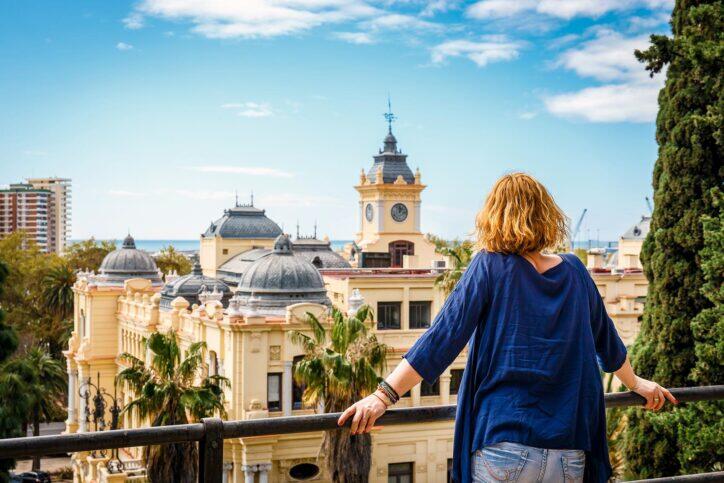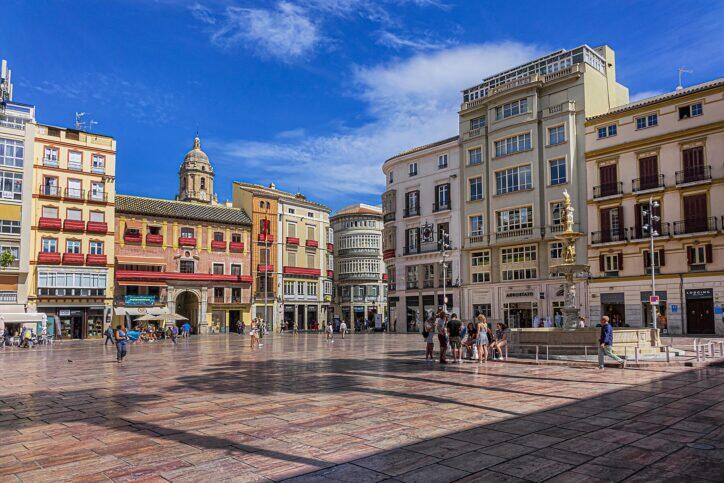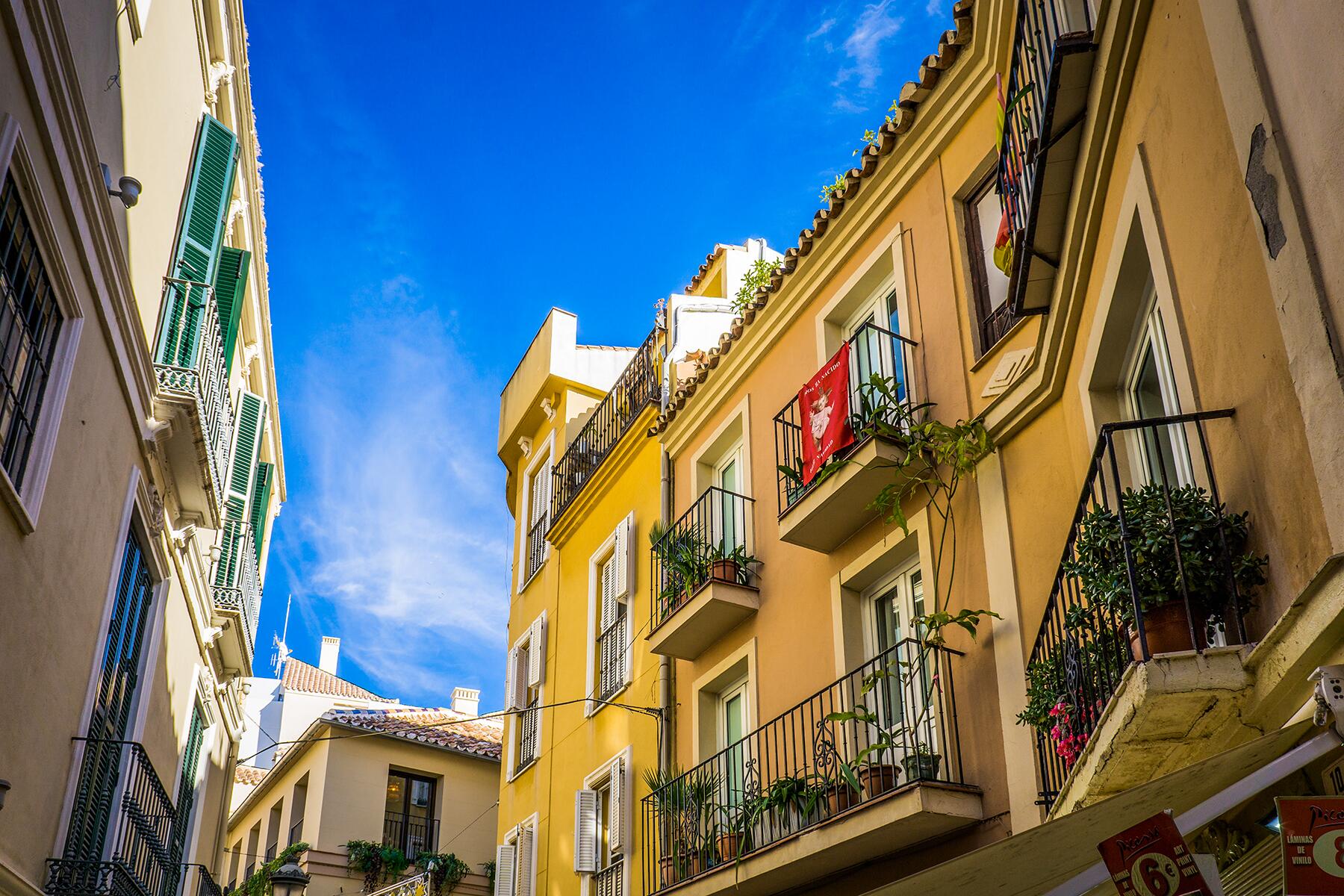And, after reading this, you may also be packing your bags soon.
According to Schengen Visa Info, pre-pandemic Spain was the second most visited country in Europe with an estimated 81.9 million visitors. It’s no wonder that many people are choosing to relocate permanently or call Spain their second home. While ex-pats from the UK tend to populate Costa Blanca, Valencia, Sevilla, and the Costa del Sol, U.S. Americans tend to settle in larger cities like Barcelona and Madrid. The Southern and East Coasts of Spain boast spectacularly affordable living, scenic beaches, and beautiful villages. The larger cities of Spain offer spectacular nightlife, great public transportation, attractions, international amenities, and attractions, as well as a much more affordable living compared to city capitals around the world. The prices below reflect the currency rates at the time this article was published.

A Breakdown of Living Expenses
I’ve been living in Spain since 2018 and opted to leave pretty much everything behind. I am not a homeowner yet, so I don’t have to worry about a large property. Anything that I couldn’t part ways with is being stored by friends and relatives. Honestly, it’s hard for me to remember what belongings are where and I’ve told quite a few people they could keep, discard, donate or sell much of what I’ve left behind. Whatever I miss, I’ll probably collect it during my next visit.
Recommended Fodor’s Video
I disconnected my cell phone service once I found a Spanish plan. I shopped around but found a plan for €20 (approximately $24) a month for a basic phone plan which includes unlimited text messages in Europe, 200 local minutes, and 20 GB of data which rolls over each month.
Rent varies dramatically depending on where you choose to live. In Madrid, many of my friends pay more than €400 ($484) to share an apartment with two or more roommates, while in Málaga, I pay €450 ($545) for a studio apartment 10 minutes from the beach. Water is included in my rental fee and my high-speed internet service costs €30 a month ($36). My electricity bill varies dramatically; it can be anywhere from €35-65. To save money and energy I use a timer on the air conditioner and blackout curtains. It also doesn’t get cold enough for me to desire a heater during the winter, however, in central Spain, it was a different story. When I lived in Castilla La Mancha, I paid €360 ($436) for a brand new two-bedroom apartment, but my bills were substantially more expensive. I used the heat for two months and it cost me approximately €270 ($326).
Groceries and dining out are relatively inexpensive as well. I never spend more than €40 for large hauls that include toiletries and cleaning supplies, adult beverages, snacks, and meals. My weekly budget is usually around €20-25 a week and that usually includes two bottles of wine, two types of meat, eggs, rice, pasta, lots of fruit and veggies, ice cream, cheese, and two types of bread.

What Are Some More Perks of Living in Spain?
Let’s start with affordable healthcare.
Now, I was lucky enough to find employment that offers a free health insurance package. But, before this job, I did have to get purchase my own health insurance, and that was roughly $70 a month. Spain offers care at public and private hospitals and clinics. If you have a medical emergency, always opt to go to the hospital; otherwise, you’ll need a referral from a doctor for a hospital visit. Since they offer public and private services, you need to let the staff know which service you’d prefer.
To register for Social Security to receive public health insurance in Spain, you’ll need:
- A valid passport or ID card
- A certificate of residency
- Proof that you have registered your address at your local Ayuntamiento (local town hall)
After that’s done, you’ll receive a social security number through the TGSS and then you can register for health care or medical treatment. You can opt to receive the card via mail or pick it up. Residents in Spain have to pay a percentage of their annual income to use pharmaceutical services. The amount depends on your circumstances, like whether you’re a pensioner, working-age, or suffer from chronic or serious illnesses. Private health insurance ranges anywhere between €50 – 200 (approximately $60 – $242) a month. Mental health services are available for the community, but you’d either have to pay out of pocket or opt for private insurance to cover some of the costs for serious conditions or long-term treatment.
Pandemic Costs and Savings
My life since the pandemic has been relatively tranquil due to my location near the sea. To the north, I have unbelievable mountain views and, to the south, I have a view of a luscious bird park and the Mediterranean Sea. I work outside my home for about 12 hours a week and work remotely for the rest of the time. My utilities have almost doubled due to the amount of time I spend at home but, because I live comfortably, I don’t mind.
Because I’m no longer traveling, I’ve been able to spend less than $1,000 a month, which goes towards things like groceries, cleaning supplies, dining out once a week, and $46 on public transportation, rent, utilities, and small indulgences. Free tapas come with a glass of wine or beer and I try my best to shop for groceries and clothing locally. When I was traveling, my costs were about $1,500 -$1,600 a month, which included flights, accommodation, and food. I try to visit attractions on discount days and limit myself to one expensive attraction per trip but splurged on food and wine. I also purchased cheap flights all the time, some for less than $15. But, now with quarantine restrictions and the need for COVID tests, I fly a lot less frequently, as opposed to the one international trip (which could include up to four countries and multiple cities) and two-to-three local trips I was taking per month.
Thanks for putting this together!!! This is a good start and is super informational. When it ends though, it feels incomplete. What about details about how to get a visa? How easy is it to move there as a digital nomad without being employed by a Spanish company?
If you are an American, they don't give social health care to you, only to people of other countries. Also, if you're an American and want to have your own car you need to get Spain's driver's license because they don't have an agreement like with other countries in where they only swap your driver's licence for Spain's.




The best tips is to use the services designed for Spanish citizens and avoid the traps for foreigners.Health insurance: Healthcare in Spain is one of the best in the world. So medical insurance designed for Spanish people is astonishingly good quality, and cheap. The best option hands down is www.asisacaresforyou.com: Asisa is a Spanish company that offers a plan with customer care by native English speakers that help you navigate all sorts of situations that can catch you unprepared when you fall ill. The plan covers you anywhere in the world, which is perfect for people like me who don't want to be stuck in one place for long. They even cover you when you fly back to the US to visit family. Bank accounts: I have found Spanish banks very inefficient and bureaucratic. The best option is either Transferwise (which has a borderless account in several currencies) or N26, a German bank that has recently won a banking licence to operate in Spain. Many Spanish people are also migrating from bricks & mortar banks to fintech models, especially the more internationally minded executives and entrepreneurs. Whatever you do, don’t buy insurance from your bricks & mortar bank in Spain.Before purchasing a property: Rent it. This applies to any country, but in Spain there are many legal structures you can benefit from.